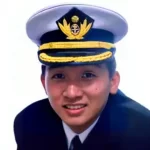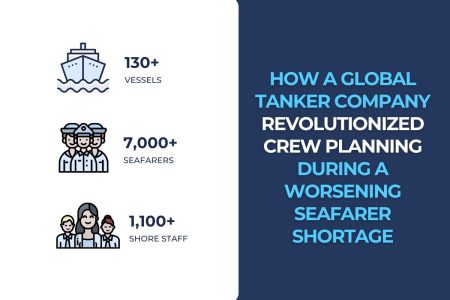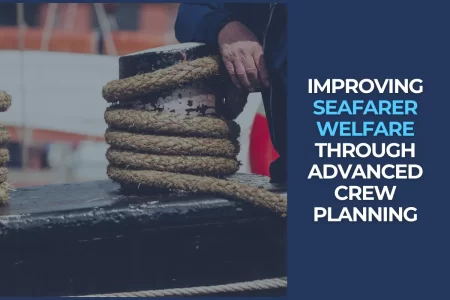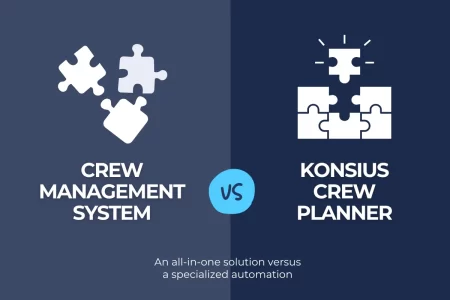Captain James Foong’s unwavering advocacy for crew welfare is truly inspiring. His passion for seafaring shines through as he shares invaluable insights into the challenges and rewards of life at sea. In this article, he provides a comprehensive view on seafaring, crew welfare, and the challenges seafarers face due to inefficient crew planning, emphasizing the importance of fostering a harmonious and effective onboard community.
Tell us something about yourself
Hi, my name is James Foong, trained in Malaysia, educated in New Zealand and graduated from the UK. In 2006, I received full scholarship from Malaysia MISC Group sponsorship program as deck cadet to sail onboard their LNG tankers. I passed the highest grade of a ship captain qualification at 28 years old from the NZ Maritime School, becoming the youngest Master Mariner certified by the Government of New Zealand in 2016. I also awarded my MBA degree from Middlesex University London in Shipping and Logistics, which is recognized by the UK’s Chartered Management Institute. As of now I am serving onboard ice class type 1C as a Master Mariner sailing in subzero working temperatures down to -50 deg C. I share Thought Leadership and Personal Branding on LinkedIn (with 32,000+ Followers)
Why did you choose this profession?
What are the top challenges of being a seafarer that many outside the industry don’t realize?
As a captain, I sleep with “one eye opened” – every day when we carry out our routine job must be with extra caution, and sometimes things happened onboard when you never thought it would – Murphy’s law mindset applied at all times, either you are 20 years old veteran or 20 days old intern.
As a leader we should never play “blame game culture” onboard ship, just like what has been practised ashore in the corporate.
I have experienced before during our routine manual sounding of all ballast tanks we found out that one of the ballast tanks were not empty – but recorded empty! It means water has been breached – luckily, we found it out early, we had multiple checks to make sure where is the leaks and risk assessment immediately carried out – ship just left the last port in Europe enroute to Canda sailing through the North Atlantic.
This is what I called it Murphy’s Law, I always tell my crew we are professionals, not by paper but also how we handle things professionally when come to things like this. We are lucky with the support from our office immediately we had to sail to the closest port to berth the ship for underwater repair and certified by authorities before continue sailing.
Can you provide examples of how these challenges have directly affected your work or well-being?
It makes me (become) a very practical person. I do not believe in “coincident”. Everything happens for a reason, “consequences” is the word.
Consequences means it is from the decisions we took the action causes that thing to be happened.
I have a habit to note down a diary of what I have done or spoken on the ship – it keeps my mind sharp and not forgetful.
Do not forget to spend more time having quality conversation with the junior rank officers – never underestimate the power of the younger generations, sometimes they know more than what we knew!
In your experience, what would you say are the challenges within crew planning? Are you happy with how it has been done in your previous and current company?
Honestly speaking, the crew recruitments are mostly done by the white collars in the office, which most of them have no idea what is it working on the ship, and these newly recruited will be joining on the ship working with us (the blue collars) only to realise actually their competency is not as what was illustrated during their job interview.
Newly joined higher ranks onboard have limited knowledge about the ship culture, which can easily cause dispute among the crew onboard who have been in the company for many years.
Overall, what improvements do you think are needed in crew planning?
I always say, an incompetent crew is a danger to the ship, cargo, and its crew – all are the company assets. So, the best practice would be to recruit junior ranks and train these junior ranks up – crew retention at its best. Refrain from recruiting higher rank positions with absolutely zero exposure to company practice/culture; serving as a leader onboard is disastrous.
Shorter contract is always the key, I would say the best would be “100 days at sea 100 days vacation” cycle is the best. This cycle has been practiced in offshore vessels crew but for foreign going with 6 months or 9 months at sea is too long.
What are your top tips for aspiring seafarers on how to succeed in this industry.
Networking always, be it on any social media platforms, LinkedIn, Youtube, Tiktok – go out all you can, be visible. The sky is the limit. Never underestimate yourself.
You never know who is your next boss and your future boss might be reading what you produced on the social media.





